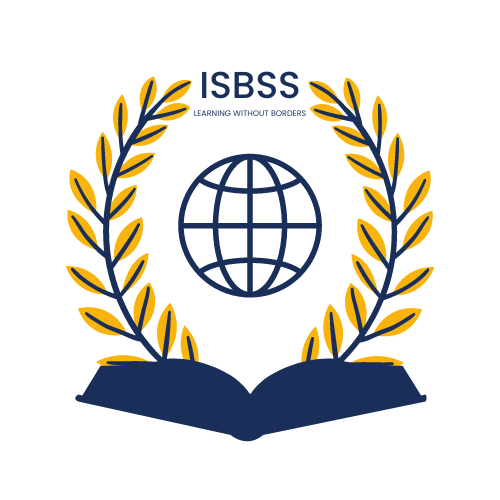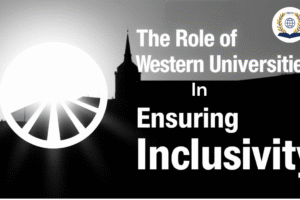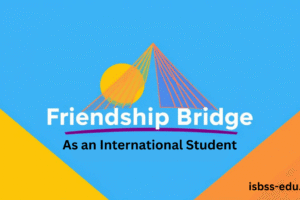
Visas and Policies Hinder International Students
Visa and Policy Barriers Shape the Educational Journey of International Students.
For years, students from around the world have set their sights on studying in Western countries. And why wouldn’t they? A world-class education, endless career opportunities, and the chance to immerse oneself in a completely new culture—it’s the dream.
But before they even step into a classroom, there’s a mountain to climb. Paperwork. Financial proof. Interviews. And let’s not forget those visa decisions that sometimes feel completely random. Ever heard of someone with perfect grades and full funding getting rejected, while another with half-baked plans gets the green light?
Honestly, it’s like trying to enter an exclusive club where the bouncer (immigration policies) keeps changing the dress code.
The Visa Saga: A Test of Patience and Deep Pockets
The struggle begins before students even pack their bags. The visa process? Oh, it’s a bureaucratic nightmare.
Think endless forms, proof of funds that seem designed to test your financial endurance, and arbitrary rejections with no explanation.
For instance:
- To study in France, students must prove they have at least €7,380 in their bank account, pass a language test, show proof of accommodation, and still pray that their visa isn’t rejected for mysterious reasons.
- In the U.S., getting a visa approved is almost as unpredictable as guessing which celebrity will go viral next. Immigration policies have become stricter, making visa renewals a nerve-wracking experience.
These barriers often discourage bright students who would otherwise contribute to the academic and professional world. If only universities gave out visas as easily as they give out assignments!
Financial Struggles: Balancing Studies and Survival
Once students manage to land in their new country, they’re hit with another harsh reality—financial restrictions. Many countries limit how much international students can work, making it nearly impossible to cover living expenses.
Some examples:
- In France, students can work only 91 hours per month, earning around €855.40—which is nowhere near enough to survive.
- In the U.S., international students can work only 20 hours per week. So unless they find a way to live on instant noodles forever, financial struggles are inevitable.
A study found that 60% of students seeking food aid in France were international students. Crazy, right? You spend years dreaming about studying abroad, picturing yourself thriving in a new country, and then reality hits.
Graduation… and Then What?
After years of studying, students expect a smooth transition into the job market. But nope, more hurdles await!
- In France, for example, that’s the reality—it’s a bureaucratic headache that makes many employers think twice about hiring foreigners.
- And it’s not just France. In so many countries, work visas come with strict quotas, endless paperwork, and waiting periods that feel like they last forever.You’re stuck in limbo, refreshing your inbox every five minutes, hoping for good news.
Frustrating? Absolutely. So, how do you keep going when the system seems stacked against you?
Are There Any Solutions?
Thankfully, some countries are making progress:
- In Canada, international students can work up to 20 hours a week while studying and full-time during vacations. Not bad, right?
- Germany takes it a step further—low tuition fees and the chance to work up to 120 full-time days a year. That’s a huge plus for students trying to support themselves.
But overall, most countries still treat international students like temporary visitors rather than future contributors to their economy.
So, what can be done?
Possible Fixes (If Only Policymakers Listened!)
- Visa Reforms – Make applications simpler and faster, with longer validity and easier renewals.
- Better University Support – Provide more scholarships, financial aid, and digital learning alternatives.
- Government & Institutional Collaboration – Universities should push for easier work permits and advocate for policy changes.
A Smarter Alternative: ISBSS – Education Without Borders
While governments take their time fixing these issues, the International School of Business and Social Sciences (ISBSS) is already offering a solution. No visa struggles, no bureaucracy—just quality education that’s accessible to all.
Why ISBSS?
✔ 100% Online Learning – Students can study from anywhere with an internet connection. No visa? No problem!
✔ Affordable & Flexible – Designed for students from regions where studying abroad is challenging.
✔ Globally Recognized Degrees – Accredited programs with real career opportunities, minus the paperwork headache.
Final Thoughts
Visa restrictions and rigid policies continue to make life difficult for international students. While governments debate reforms, institutions like ISBSS are taking real action to provide accessible, flexible, and high-quality education.
So, the question remains: Will policymakers step up, or will students have to keep finding creative ways to jump through these hoops?Either way, one thing is clear—education should be a bridge to opportunity, not an obstacle course.
Tag:externalization of migration, externalization of migration governance, immigration and the budget, international policy, international relations, international scholarships, international student, international student in usa, international students, international trade, ISBSS, scholarships for international students, scholarships for international students 2021, scholarships for international students in usa, usa scholarships for international students



